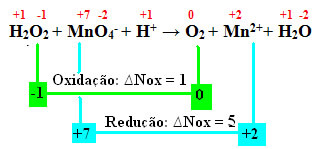The educational right and duty of parents qualify as essential, linked as it is to the transmission of human life; as original and primary, in relation to the duty of educating others, for the unity of the relationship of love that subsists between parents and children; as irreplaceable and inalienable and, therefore, not wholly delegated to others or by usurpable.”
(John Paul II – The mission of the Christian family in the world today, 36.)
Educating in the information society is not just about investing in technological apparatus and teaching how to use it. It's no use for young people to know how to use the digital tool; you need to educate them on how to use it responsibly, ethically and safely. It is the educator's duty to guide the correct use of the network, indicating the consequences of inappropriate use not only for the individual but also for society.
Parents play an important role in education, but often feel lost amidst so many technological innovations, not knowing which the limits to be imposed, or even without real knowledge of the dangers that their children run due to uncontrolled exposure online.
They also remain confused about the roles in education, leaving it up to the school, including what should be its obligation. Education in the private sphere (moral values) is the family's responsibility, while in the public sphere (culture, knowledge) it is the school's responsibility. Parents must assume their part as educators and not charge the school for functions that should be theirs.
Pedophiles and kidnappers, phishing scam, cyberbullying, good manners, inappropriate content for minors, legal consequences of misuse of Internet, crimes committed under the false impression of anonymity, inability to think critically about false and true information available on the web, plagiarism, piracy, and even misuse of the school's brand are some of the subjects few parents talk about with sons.
Many believe that content filters or blockers can be the solution to the lack of time to follow the child on the Internet. A mistake! We cannot run away from our obligations. As content filters are not 100% efficient (no technology is!), it is almost inevitable that children and teens will come across child and adult pornography, content that promotes delinquency (destroying, building weapons, falsifying documents, etc.), content that promotes hatred, drug trafficking, gambling, among others. Thus, there is no technology to replace a good conversation about mastering curiosity and moderation. The confrontation being almost inevitable (not least because young people are experts in finding ways to bypass the filters), it is what young people will do at that moment that will make all the difference.
There are easy ways for kids to get in touch with inappropriate content: advertisements (mostly pop-ups), search engine words, typosquatting and cybersquatting, email spam, and more. Children must know all this to know what to do.
Another point to be noted is teaching about the difference between the public domain and the public environment. Many children and teenagers think that if the content is on the Internet, it is because it can be used in any way, without even asking permission from the person responsible for it. However, not everything that is in the “public environment” (in this case, the Internet) is in the “public domain” (a legal hypothesis in which the material can be used without the author's authorization).
Likewise, the false anonymity must be clarified. Crimes are committed on blogs and virtual communities (such as Orkut) because the user believes he will not be identified if he uses the condition of anonymous. We remind you that it is perfectly possible to identify any user on the World Wide Web through the IP (Internet Protocol) number, which identifies each of our connected computers.
Download music royalty free through P2P (Peer-to-Peer) programs like Kazaa, eMule, LimeWire, etc., can also be an innocent act that can cause a lot of headaches for children and country. The International Federation of the Phonographic Industry (IFPI), based in London, is engaged in tracking and prosecuting civil and criminally any user who downloads or shares music illegally, including in Brazil (which is already happening). It is recommended to encourage downloads legally on sites specializing in music sales. Therefore, one idea is to provide a specific “allowance” for this purpose.
As for cyberbullying (when a student persecutes and humiliates the other in the virtual environment), it should be clarified that there are punishments not only in the judicial sphere, but also in schools. Schools have the independence to warn, suspend or expel students, as in cases of aggression against the honor of other students or teachers on the Internet and disobedience to orders imposed on the use of the Internet within the institution. In Rio de Janeiro, judge Cássia Medeiros stated in a case of suspension of a student from the 1st grade of high school: “As long as there are no abuses, the application of disciplinary penalties by educational institutions to their students cannot be reviewed by the Judiciary”.
Once again: education about moral values is a parent's duty! Young people should think twice before posting something online, as the results can be overwhelming. Reinforce: everyone is responsible for what they write!
In this sense, both children and adolescents can be personally punished for their illegal acts in the criminal sphere. Minors under 18 do not commit crimes, but infractions, punishable according to the Statute of Children and Adolescents. Penalties are socio-educational measures to be defined by the judge, which can range from community programs to psychiatric treatment. Parents, in turn, may suffer civil indemnity actions, feeling the consequences of their children's actions in their pockets.
Thinking even further, education for the use of technologies today can reflect on your child's professional life tomorrow. By educating him as a young person, a professional capable of dealing with the work environment is being prepared. The domain of technology is a differential for the modern professional and, without the safe, responsible and ethical use of digital tools, the work space decreases.
By giving us the opportunity to cross borders, break down barriers and share ideas in a unique way, the Internet is not a villain, but an ally, which provides for the increase of reading skills (stimulating new readings), helps to find information, solve problems, communicate, and undoubtedly acquire skills increasingly demanded in the market of Work. It is up to parents to assume their roles as educators so that their children have a positive experience online.
By Carolina de Aguiar Teixeira Mendes
Law and Education – New Technologies
Lawyer, consultant, speaker.
[email protected]
24/11/2006
education - Brazil School
Source: Brazil School - https://brasilescola.uol.com.br/educacao/educacao-e-novas-tecnologias.htm


